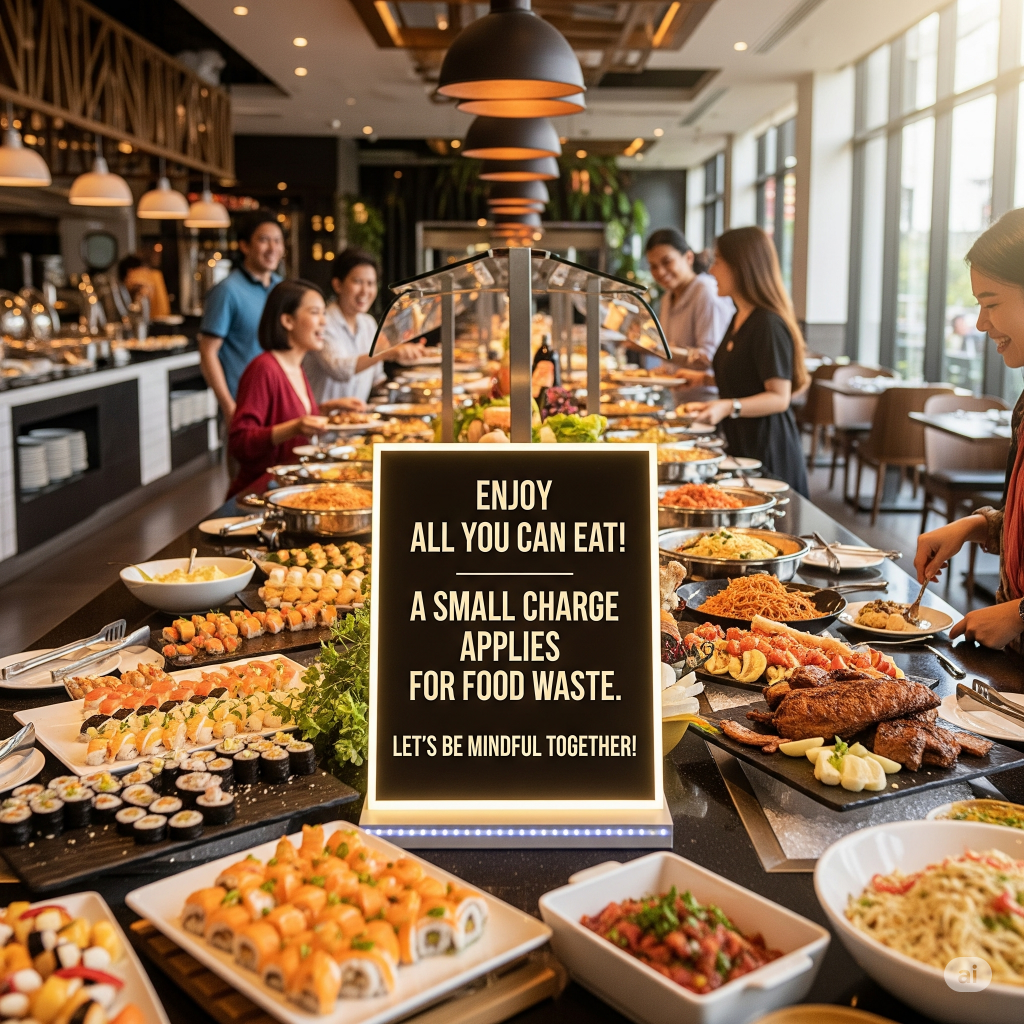If you leave food, you will be charged extra

All-you-can-eat restaurants that charge for excessive food waste typically don’t have a precise, universally applied threshold for what constitutes „too much.” Instead, it’s generally based on what the staff considers unreasonable or excessive waste.
Here’s a breakdown of what that often means:
- Significant portions left: They’re usually not concerned about a few stray crumbs or a tiny bit of sauce. The charge comes into play when there are substantial amounts of uneaten food, like full plates of food, multiple untouched sushi rolls, or large quantities of meat.
- Intentional over-ordering: The primary goal of these policies is to discourage customers from piling their plates with far more food than they can possibly eat, or ordering an excessive number of items with no intention of finishing them. This prevents the restaurant from incurring significant costs due to discarded food.
- Restaurant discretion: Ultimately, it often comes down to the discretion of the restaurant staff. They’re looking for clear signs of wastefulness rather than minor leftovers. Some restaurants might even have signs or menu disclaimers specifying their policy.
- Examples of specific policies: While not universal, some restaurants have implemented specific charges:
- Some might charge a fixed fee (e.g., $5, €10) for excessive waste.
- Others might charge per specific item (e.g., $1 per uneaten sushi piece).
- Some even charge by weight (e.g., €3.50 per 100 grams of waste).
- If you leave food, you will be charged extra
- słówka: